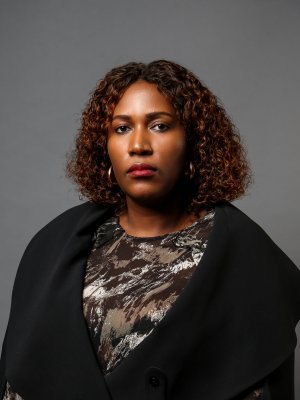Many women who enter professions don’t progress to senior leadership positions – a phenomenon known as the leaky pipeline. Having a mentor or sponsor to provide guidance can encourage career development and assist organisations with talent retention.
Employees perform better, advance faster, and choose to stay in their organisations for longer when they have effective mentors and sponsors, according to the Harvard Business Review: “Mentorship and sponsorship are critical — especially for people of colour and women, both of whom are more likely than others to report mentoring as very important to their career development.”
The rise of the hybrid workplace has resulted in professional disruption, increased loneliness, and a blur between our personal and professional lives. According to McKinsey’s Women in the Workplace 2021 study, women and mothers in dual-income households have taken on additional hours of domestic work compared to men due to pandemic-linked challenges. This means that for many women, workplace advancement is not a priority, and mentoring other women in more junior positions has fallen by the wayside.
Having a mentor allows women to understand how female role models in senior positions can manage their obligations and succeed at work while juggling personal responsibilities. Mentorships can help keep us connected. They can also benefit the mentor, giving them an opportunity to gain a fresh perspective.
Mentorship programmes or informal connections?
While many companies run mentorship programmes for employees, are these worthwhile, or is it better to develop your own mentoring relationship?
Adele Bekker, head of career services and alumni at GIBS, says it is up to individuals to create mentorship relationships: “You can’t force people – they need to find their own mentors.”
Informal mentoring is more personal, allows in-depth, authentic conversations and can often be more useful than the benefits gained from formal mentorship programmes.
Bekker believes mentoring should start at the beginning of one’s career. She advises mentors and mentees to meet monthly and have a formal confidentiality agreement. “The onus is on the mentee to set an agenda for the meeting. There needs to be commitment and skin in the game, or it is just a coffee chat.”
Elise McCabe, a career coach at Career Management Consulting, says that while coaches and mentors are often given to senior leaders, there is a growing realisation that young people also need to be equipped with skills.
“Different mentoring processes require different strategies, benchmarks and goals. Informal mentoring has very little structure and is based on the relationship of the two partners involved. Often, these develop into a long-term friendship, with no specific goals or timelines and often only indirectly benefit the organisation,” Louisa Spangenberg, senior human capital business partner at Altron Karabina believes.
Organisations benefit from formal programmes that are structured, based on business objectives and which are measurable.
Njabulo Mashigo, human resources director and executive director of Vodacom South Africa, says the Vodacom Youth Council programme allows junior employees to shadow members of the executive committee. “This places emphasis on reverse mentoring and allows for topics like company culture and our digital transition to be discussed. Personally, it has given me insights from the young leaders in the organisation and challenged us to question whether we are really living our values and enabling a culture of innovation.”
Gender and mentorship – does it actually matter?
Is it better to be mentored by an experienced senior executive or someone of the same gender who may have encountered similar obstacles to you during their career?
It can still be relatively difficult to find a female mentor in a senior leadership role. According to Bloomberg, women held only 29% of the board seats in the top 100 listed companies in South Africa as of April 2021.
Navlika Ratangee, clinical psychologist and managing director at ICAS Southern Africa, says her male mentors have positively impacted her career: “Having the mix in the relationship offered different perspectives. In a male-dominated world, it can help to have males that open doors for you, and it has played a role in people taking me more seriously.”
Mashigo believes mentoring goals determine whether gender is a factor in the relationship: “I would like to say that gender doesn’t matter. However, if your goal is to identify a person walking a similar journey, it can help in gaining an understanding of ways in which to face certain situations.”
While her initial mentors were men, Mashigo says gender was never a barrier. “Having senior male mentors was an opportunity to see how they managed their careers and what they were intentional about.”
Advocate Kate Hofmeyr, SC and evidence leader at the State Capture Commission, clerked for former Chief Justice Arthur Chaskalson at the Constitutional Court during her early career. She says the women were “an inspiration. My colleagues and I could look up to them and chart a course, realising that it was not impossible to reach the top of our profession.”
While there is traditionally a very high attrition rate among women in the legal profession, Hofmeyr says, “women are increasingly realising how important it is to support other women. I have been supported extraordinarily by my colleagues, and we have been very deliberate in our efforts to encourage junior women, both formally and informally.”
Dr. Jacinta Delhaize, astrophysicist and lecturer at the University of Cape Town, says her mentor, Professor Lyn Beazley, former chief scientist of Western Australia, is “a hugely inspirational person and has changed the trajectory of my life. We have regular catchups and plan for the future, and she gives me some very practical advice. A mentor can be very valuable; having that one person to guide you can be key.
“Having a female mentor means we have similar life experience and concerns. Learning about imposter syndrome was really valuable, as it is a concept that women in particular struggle with. She gave me the confidence to rise above that,” Delhaize says.
Identifying a mentor
“Identifying a mentor is a very personal choice. There must be a trust factor, and you have to be comfortable with their advice,” McCabe says.
- Networking events are a good place to identify potential mentors.
- Current and past bosses, former colleagues and experts in your field can all be potential mentors. A mentor doesn’t have to occupy an executive position – sometimes an individual a few years ahead of you in their career can offer practical and relevant advice.
- If you want to pursue a career change and enter a new field, find someone who has undergone a similar journey, McCabe advises.
An effective mentor is someone you can confide in and who has a mutual desire for your personal and professional growth.
- When trying to establish a relationship with a potential mentor, be as specific as possible “Mentees must be clear on what they want to get out of the relationship when approaching a potential mentor,” Bekker says.
- Make an effort, prepare for your conversations, and put a plan together to show you are serious.
- An ideal mentor is someone who doesn’t provide you with quick answers but rather challenges your assumptions and helps you think about issues critically.
Becoming a mentor
Being a mentor is a discipline. Mentors must realise the relationship is a dynamic one, and they could potentially end up being mentored by their mentees. “Identify a niche you would like to help out in and realise that not everyone is equipped to be a mentor,” McCabe advises.
“Mentoring is a mutually rewarding experience,” Hofmeyr says. “I get to think about a question in the law that (my mentee) is confronted with, and then see their growth and development. The pursuit of justice and the rule of law are enhanced the greater the skill base of the people who ply my trade.”
“I believe you grow by opening up your worldview and considering different perspectives,” Ratangee said. “My role as a mentor continues to offer me that. It is so easy to be focused on your own goals and objectives, but it is through unrelated discussions that you often gain perspective on your own issues.”
What’s the difference?
A mentor focuses on helping you navigate your career, identifying your strengths, and working through challenges. They act as your cheerleader and guide and help you to navigate difficult situations.
A sponsor is an influential leader who actively works to highlight your work and helps you access opportunities and promotions. While mentors tend to coach and advise, sponsors take on a more active role.
A coach provides a combination of coaching, mentorship, and advice. Whereas a mentoring relationship offers guidance, coaching helps people to find the answers within themselves by directing and giving tools and tips.
Personal views
Navlika Ratangee, clinical psychologist and managing director at ICAS Southern Africa
I have had the benefit of a sponsor all the way through (my career). I always had someone who rooted for me in the business and opened doors.
In both instances, they made it clear they wanted to see me progress within the organisation and would volunteer me for projects. This enabled me to showcase my capabilities outside my day job and direct team and gave me visibility in the organisation.
You can’t become a leader without the support of others. To grow within your organisation, the most important thing is to build relationships along the way. You need access to people, and somebody must be in your corner to build those relationships.
Advocate Kate Hofmeyr, SC and evidence leader at the State Capture Commission
When an advocate enters the profession, they undergo a year of pupillage allocated to a more senior member of the profession. This is an essential feature of beginning practice, as you gain an understanding of the methods of the law, the practical realities of the court system and how to approach matters. But mentoring continues well beyond pupillage and, in my view, is essential to success at the Bar.
The benefits of mentoring go both ways. At the Johannesburg Bar, we structure ourselves into groups of advocates who take the development of more junior members quite seriously, arranging talks and facilitating group networking sessions.
When I joined the profession, it was disproportionately male and structured not to suit or even recognise the role that women might play in it. Of course, there were some women, and it mattered that they were there, but they were rare.
Mentorship allows for a much more collaborative environment, and we get the best out of everyone.
Dr. Jacinta Delhaize, astrophysicist and lecturer at the University of Cape Town
During my years at university in Western Australia, there were almost no senior women in my field. Often, I had male mentors as there were simply no women in the field of astronomy. They were fantastic and gave me opportunities and great advice.
On female role models: It never occurred to me that I couldn’t achieve in my field, but seeing somebody else do it made me realise I definitely could. That makes all the difference in the world.
I’m very passionate about mentoring. The best way to learn is by teaching, and I often find I need to take my own advice. A PhD is extraordinarily difficult to get through and complete, and I like being the cheerleader and giving hope and encouragement to my mentees.









